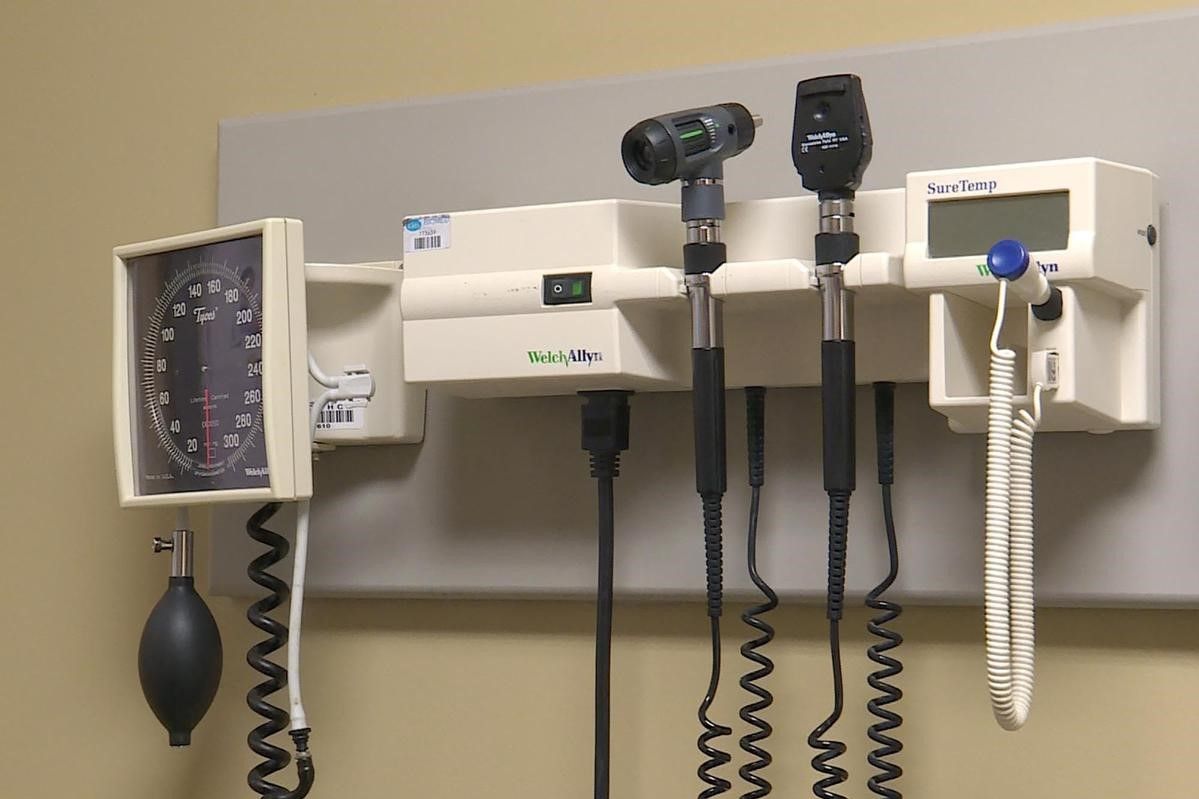
Last year, the Senate Appropriations Committee didn’t schedule a similar bill for a hearing, despite it being a GOP priority bill, due to fiscal concerns. (Abigail Ruhman/IPB News) (Lauren Chapman)
Insurance companies may require what’s known as prior authorization for medical services before they will cover it. The Senate Appropriations Committee approved a bill Thursday to limit the use of the practice for state health plans like Medicaid — but an amendment to the bill stripped several key provisions.
Last year, the Senate Appropriations Committee didn’t schedule a similar bill for a hearing, despite it being a GOP priority bill, due to fiscal concerns.
The Senate health committee easily passed this year’s prior authorization bill.
Senate Bill 480's original language included several policies to limit how much insurance companies could use prior authorization. This included prohibiting its use for drugs under $100; putting a cap on how often insurers can require it for covered services; and eliminating it for all opioid substance use disorder treatments.
All those provisions were removed over fiscal concerns.
Sen. Liz Brown (R-Fort Wayne) said this is an issue Indiana has been trying to address for years.
“This is disturbing to me that we aren't able to figure this out,” Brown said. “This is no offense to anyone on this committee or in this body, but the insurers have done a good job of dragging their feet on this.”
Brown said it costs Indiana more money in the long run and hurts patients.
“If anyone thinks this is actually keeping costs down, then go to providers and find out how many people they employ just to run paperwork through the process to get approval for something — a procedure that's already covered by their insurance plan,” Brown said. “We're not talking about innovative operations or innovative therapies that were not contemplated. We're talking about getting a stent put in when you're having a heart attack. We're talking about getting a knee replaced when you've done everything else and you're in excruciating pain — which your insurance plan covers.”
One provider said, in a small practice with just three doctors, there was one full-time employee who was focused on prior authorization paperwork. And even with that full-time employee, each doctor was still spending hours each day dealing with prior authorizations.
Another provider, Dr. Elizabeth Wright, said she left clinical practice because of administrative burdens created by prior authorization.
“It's claimed to be a cost control that ensures physicians are ordering appropriate medications and testing,” Wright said. “However, as a physician, I take pride in the fact that I stay up-to-date on what is appropriate for my patients.”
Wright said prior authorization requirements can also jeopardize the trust between a patient and a provider by making the patient wonder why the insurance company disagrees.
“Prior authorizations have become a game of numbers, ever-changing criteria and barriers,” Wright said. “The patients ultimately just give up on appropriate care. This game jeopardizes our patients' well-being and sometimes their lives.”
In an attempt to avoid paying, Wright said insurance companies force providers into a dilemma where they have to make a choice. She said providers have to weigh things like time.
“Can the patient wait to receive care? Taking the risk that that condition would worsen in the meantime, while we're waiting on paperwork to be filed,” Wright said.
Wright said time might have to be weighed against cost.
“Do I send the patient to the emergency department, where I know that they will receive the care that I know that they need, but at a much higher cost to the patient?” Wright said.
Then, Wright said providers have to add efficacy into the mix.
“Do I keep pushing for the correct medication that I know is the best for my patients’ diabetes? Or do I write for a subpar medication, when I know that that's not going to be the right thing, but is what will get approved?” Wright said.
But, Wright said sometimes providers aren’t even sure why a prior authorization is being denied, so it isn’t as simple as resubmitting a request. She said insurance companies are playing with people’s lives.
“For me and my colleagues, prior authorizations are not a game,” Wright said. “It leaves us guessing at what treatment will be approved and stuck with the dilemma of how to get my patients the care that I know they need.”
Joey Fox, with the Indiana Association of Health Plans, said prior authorization can be helpful for patients with high deductible health plans.
“Prior authorization is a tool that health plans, that employers, that the Medicaid program, the state employee plan uses to ensure that patients are getting the safest, most effective care, in the right place, at the right time, at the lowest cost,” Fox said.
The author of the legislation, Sen. Tyler Johnson (R-Leo), said it’s his job to keep working on the legislation.
“We probably need to keep working on finding a little step further where we can be happy with it, but [the amended bill] gets rid of a lot of the headaches in the process for sure,” Johnson said.
The bill now heads to the full Senate.
Abigail is our health reporter. Contact them at aruhman@wboi.org.











